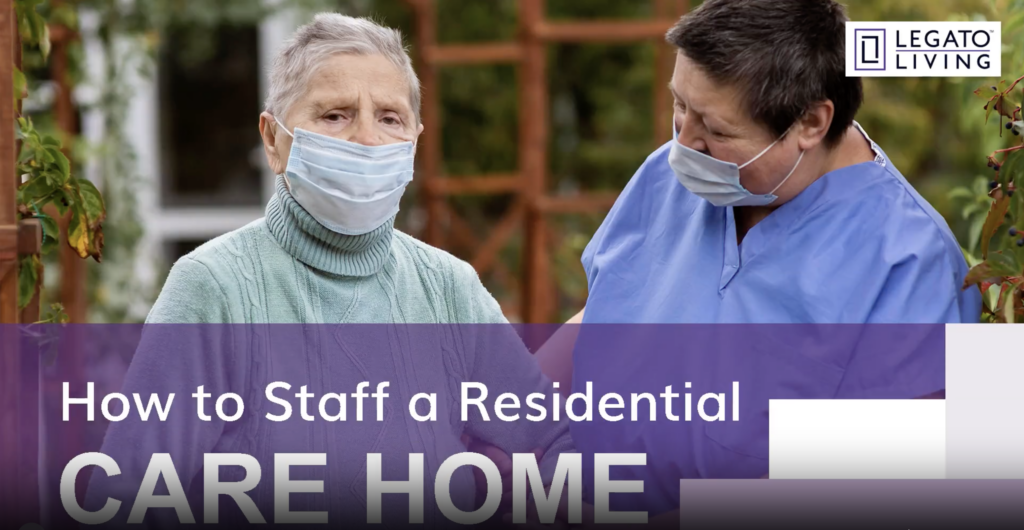Running a residential care home, like the ones franchised through Legato Living, involves assembling a team dedicated to compassionate, top-quality care tailored to meet residents’ unique needs. Understanding the diverse roles that make up the staff is crucial to creating a home environment that supports both residents and families. Here’s a guide to staffing your residential care home, highlighting the different team members, their qualifications, and the many benefits of smaller, household-like care settings.
Types of Staff
The specific staffing requirements for a residential care home depend on state regulations, but most care homes include these core roles:
- Administrator/Manager – Overseeing daily operations, ensuring regulations are met, and maintaining a high standard of care throughout the home.
- Licensed Nurse – Providing skilled medical care and managing residents’ health plans.
- Day-to-Day Care Providers – Often referred to differently depending on the state (e.g., certified nursing assistants), these team members handle the day-to-day needs of residents, from personal care to assistance with mobility.
Each role is essential to the seamless functioning of the home, ensuring every resident receives the individualized care and attention they deserve.
Smaller Models vs. Larger Facilities
One of the unique benefits of residential care homes, like those offered through Legato Living’s franchise model, is their smaller size. Unlike large facilities, residential homes maintain a lower staff-to-resident ratio. This allows caregivers to provide more personalized attention, fostering closer relationships with residents and offering peace of mind to families.
Extending the Care Team
Residential care homes benefit from outside contractor services, such as visiting medical professionals, therapists, and specialists. This approach ensures residents can receive necessary treatments within the comfort of their familiar surroundings, eliminating the stress of traveling to external appointments. Having an extended care team available further enhances the holistic approach to resident well-being.
Qualifications of Team Members
Staff members in a residential care home must meet certain qualifications and state-specific licensure requirements to ensure residents’ safety and proper care. Roles like Medication Aides or Med Techs require specific certifications to administer medications safely. Another valuable asset to the team is Universal Workers, who wear many hats, assisting with meal preparation, activities, light cleaning, and fostering a homely atmosphere. These versatile team members help ensure seamless operations while providing residents with a nurturing environment.
Residential Homes vs. Traditional Caregiver Facilities
One of the standout features of residential care homes is the household-like environment they create. Unlike larger, institutional facilities, these homes emphasize smaller groups, allowing caregivers to dedicate more one-on-one time to each resident. This intimate setting enhances the emotional well-being of residents by promoting a sense of familiarity and comfort, which is especially vital for individuals with dementia.
Residential care homes don’t just accommodate residents; they foster connections. These homes feel like a true home, allowing residents to thrive in an environment where they are known, cherished, and cared for as individuals.
Creating a Caring Future
Staffing a residential care home isn’t just about meeting regulations; it’s about creating a team that embodies compassion, expertise, and dedication. Whether you’re a current or prospective Legato Living franchise owner, your thoughtfully recruited team will be the backbone of your mission to provide exceptional care for seniors and their families.
By ensuring your staff is qualified, attentive, and compassionate, you’ll create a truly transformative experience for your residents, setting the gold standard in residential care. Legato Living shows us that with the right people in place, a home can become so much more than just a living space—it can become a sanctuary.




